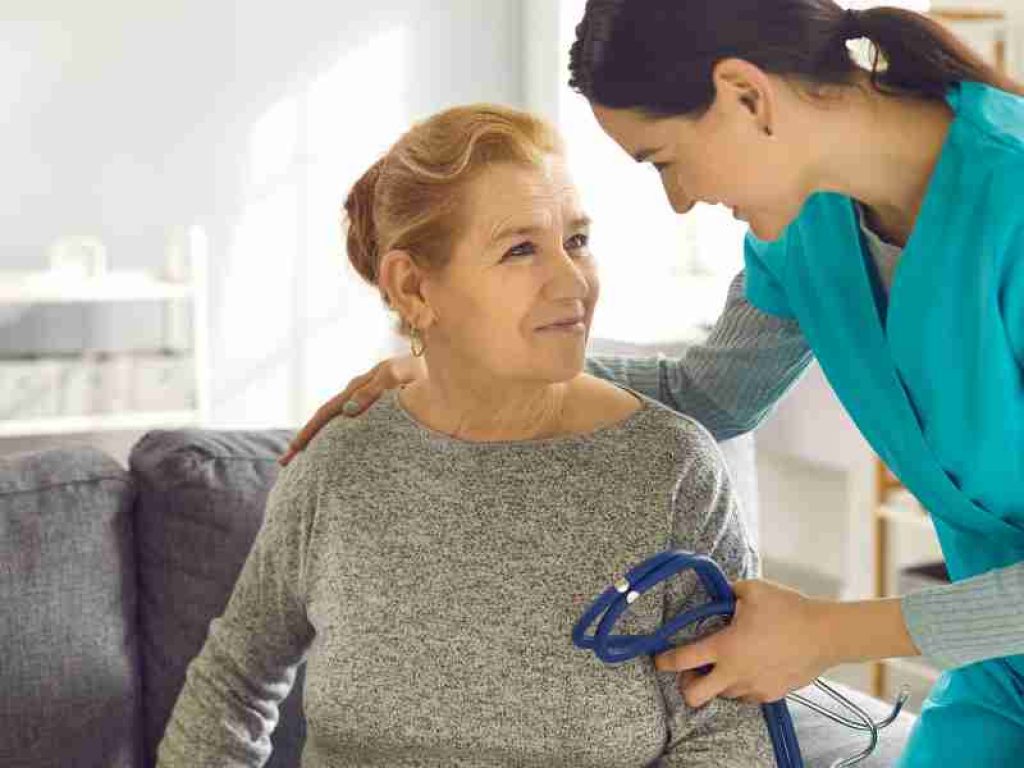
How To Become A Cardiac Nurse?
Learn how to become a cardiac nurse and make a difference in patients’ lives. Find out about the education, skills, and experience needed to excel in this rewarding nursing specialty.
What Is a Cardiac Nurse?
A cardiac nurse is a specialized healthcare professional who provides care and support to patients with heart-related conditions. They work closely with cardiologists and other healthcare professionals to assess, monitor, and treat patients with heart diseases, such as heart attacks, arrhythmias, and heart failure.
A cardiac nurse is crucial in managing and administering medications, monitoring vital signs, conducting diagnostic tests, and educating patients and their families about heart disease prevention and management. They also assist in implementing treatment plans and collaborate with the healthcare team to ensure optimal patient outcomes.

Nurses specializing in cardiac care keep tabs on patients of all ages, helping with routine tasks like giving out heart medications, evaluating patients for stress tests, and dealing with more urgent situations like assisting in defibrillation.
What duties does a cardiac nurse perform?
An average day in the life of a cardiac nurse may involve any number of tasks, including but not limited to the following:
Evaluating health:
Methods include thoroughly examining the patient’s medical background, current health status, and symptoms to identify any potential indicators of cardiac disease. Taking a patient’s pulse and hearing for abnormal heart sounds are also part of this process, as are keeping track of the patient’s intake and output, observing the patient’s skin tone, and evaluating any other symptoms.
Pills and injections:
Cardiac nurses insert and remove intravenous (IV) lines and chest tubes, monitor patients’ vital signs, and deal with adverse drug reactions.
Care after surgery:
A cardiac nurse will check for post-operative issues like infection, hematoma, heart attack, and blood clots after patients who have had surgery leave the care of PACU nurses.
Rehabilitation:
After a heart attack, the recovery process can begin in a hospital and take several months to complete. Patients may need to modify their diet and exercise routine as part of their cardiac rehabilitation after undergoing major medical treatment.
Education:
Educating patients and family members is another vital service provided by cardiovascular nurses.
Where do Cardiac Nurses Work?
Hospitals, intensive care units, clinics, and long-term care homes are just a few places cardiac nurses might find work. Learn how the responsibilities of cardiac nurses change depending on the setting by reading on:
ICU:
Cardiac nurses in the ICU may require medications or a defibrillator to treat patients who have experienced a cardiac arrest or heart attack. \In many cases, cardiac surgery combines catheters, balloon pumps, hemodynamic, and telemetry monitoring. Following the operation, patients may be treated in a specialized cardiovascular intensive care unit.
Cardiology Unit :
Keep an eye on patients’ ECGs and other cardiac readings, treat them with medication and other treatments and inform them and their loved ones about their condition.
Surgical Unit:
Get patients ready for surgery, help surgeons out during procedures, and see them through recovery.
What abilities do Cardiac Nurses need?
Think about your interests and abilities in light of the qualities and skills that can help you flourish as a cardiovascular nurse.
Maintain productivity under pressure:
Sometimes, cardiac patients need emergency care immediately since their condition suddenly worsens.
Detail-oriented:
Complex treatment approaches are needed for many cardiovascular patients. Understanding the full assessment is essential in order to make improvements and be aware of any changes that may occur.
communication skills:
Therefore, it is important for a cardiovascular nurse to be able to proficiently relay observations and concerns to the other members of a patient’s care team; even small variations can require adjustment in treatment. In addition, nurses need interpersonal skills to comfort the grieving loved ones of patients.
How to become a cardiac nurse?

If you’re interested in becoming a cardiac nurse, here are some steps you can take:
Get your Bachelor’s in Nursing:
To enter the field of cardiac nursing, one must first earn a bachelor’s degree in nursing from a recognized institution. You can gain a nursing qualification by completing an associate program in two years or a bachelor’s degree program in four years. There are many options for nursing degree programs, so it’s important to do your homework to find the right one for you.
Apply for a license:
Passing the National Council Licensure Examination for Registered Nurses is the final step in becoming a registered nurse after completing an associate’s or bachelor’s degree program in nursing (NCLEX-RN). You will be tested on your knowledge and proficiency in nursing through a mixture of multiple-choice and fill-in-the-blank questions in the examination. Once you’ve proven your competency, you can apply for a nursing license with your state’s board.
Obtain a job as a registered nurse:
To become a cardiac nurse, you must first become a registered nurse. If you’re an RN looking to switch to cardiac nursing, it might help you find a job at a hospital or other medical facility that offers cardiac care. It might be a good idea to inquire about the possibility of a future transition into cardiac nursing while interviewing for a position.
Acquire training in cardiac nursing:
There are cardiac nursing certifications out there, but some need two years of experience as an RN under your belt first. To become specialized in cardiac nursing, you must have acquired at least 2,000 hours of clinical experience. You should consult with your manager and the cardiology group to determine how to accumulate these hours.
Learning about cardiac nursing:
Maintaining your academic credentials is crucial if you want to work in cardiac nursing. Certification in cardiac nursing requires 30 contact hours of study, which can be fulfilled through various educational opportunities. Courses in cardiac nursing offered online for continuing education or professional development may fall under this category.
Gain certification as a Cardiac Nurse:
Those who qualify can gain the Cardiac Vascular Nursing Certification from the American Nurses Credentialing Center (ANCC), which could enhance earning potential and open up new career opportunities. There’s a five-year window in which you can use the certification. Additional certifications in cardiac nursing are available for those who are interested:
- Certification in Cardiovascular Medicine
- Certification in Cardiac Surgery
- Advanced Cardiac Life Support
Before applying to a certification organization, be sure you meet all of its prerequisites.
Education with a master’s or doctoral degree:
Consider earning a master’s or doctoral degree in nursing to go up the ranks as a cardiac nurse. After completing these programs, you can become a cardiac nurse practitioner, which may allow you to make more money and take on more responsibilities. Many cardiac nurse education programs are designed to allow students to work full-time while they earn their degrees.
What is the average salary of a cardiac nurse?
Average Salary ranges for cardiovascular nurses are not uniform because of the many variables that affect them. The typical starting income for these experts is estimated to be $88,646, according to Payscale reports that the average annual salary for a cardiology nurse is between $51,000 and $90,000.
What is the career outlook for cardiac nurse?
By 2018, it is anticipated that the need for registered cardiac nurses will have increased by 22%. Cardiology nursing jobs can be found in hospitals, clinics, and other medical facilities that care for patients with heart health.
What Are Some Related Alternative Careers for Cardiac Nurses?
Some closely related fields include emergency medical services, occupational therapy, and physical therapy. Critical care nurses, nephrology nurses, and addiction nurses all fall under the umbrella of registered nurses, but they each specialize in caring for certain patient populations with unique needs. In addition to their duties in hospitals and clinics, physician assistants provide physical exams, aid in developing diagnoses, and assist with administering treatments.
FAQ’s
What is a cardiac nurse?
A cardiac nurse is a specialized nurse who provides care and assistance to patients with heart-related conditions. They work in various healthcare settings, including hospitals, clinics, and cardiac care units.
What does a cardiac nurse do?
A cardiac nurse is responsible for monitoring and assessing patients’ cardiac conditions, administering medications, conducting diagnostic tests, and providing education and counseling to patients and their families. They also assist in surgical procedures and provide support during the recovery process.
Can a cardiac nurse perform surgery?
A nurse in the CVOR will keep an eye on the patient and report any serious problems to the surgeon. It is common practice for the CVOR nurse to sterilize surgical instruments and clean patients’ incision sites before heart surgery. The individual may also help run cardiopulmonary bypass machines and monitor hygiene during treatments.
How long do cardiac nurses typically work per shift?
A cardiac nurse’s typical work week consists of eight to twelve-hour shifts. Cardiovascular nurses are always in demand; therefore, working overnight and on weekends is frequent. Cardiovascular nurses frequently find employment at healthcare facilities.







